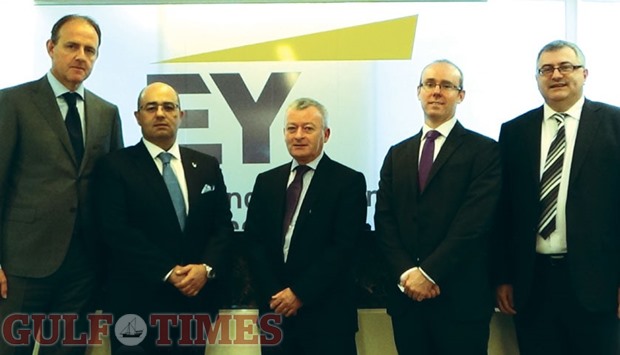The Gulf countries’ proposed 5% value added tax (VAT) may translate as more than a 10% hit on net income, unless tax efficiencies are improved, according to Ernst and Young (EY).
“A 5% rate may not sound like a lot, but if it ends up as an additional cost on purchases because a VAT structure is inefficient, it’s going to hurt much more than a 10% tax on net income,” Finbarr Sexton, Mena (Middle East and North Africa) Indirect Tax Leader, EY, said.
With the likely changes on the horizon, now would be a good time to review corporate structures for tax efficiency, to see whether tax treaties are being utilised effectively and the supply chain will work well if VAT is introduced, he said yesterday at a seminar.
“The developments will also pose challenges to tax administration. Tax authorities may need further resources and training to deal with ever more complex taxation rules and a growing taxpayer population,” he said.
Highlighting that taxation is likely to become a “more prominent business concern” across the Middle East; EY said while low corporate tax rates will probably remain, VAT seems likely to be introduced within the next few years.
Traditionally, tax has been a fairly low-key consideration for investors in the Middle East. Corporate tax rates are low, if tax is imposed at all. Expatriate labour is subject to neither tax nor social security and investors have paid limited regard to establishing efficient tax structures, Sexton said.
“If taxes have resulted, the rates have been low and have not had a large impact. Compared to other parts of the world, the Middle East has been a tax paradise. However it now seems clear that there will be some developments that make tax a more topical agenda in the Middle East,” he added.
EY said some of the larger tax challenges investors may face in the Middle East derive not from local developments but the way that tax is evolving internationally. In the 1990s, Organisation for Economic Cooperation and Development (OECD) initiated a project on harmful tax competition.
Ultimately, the OECD has recognised that there is nothing inherently wrong if a country decides to adopt a low-tax framework. However, the 15 recommendations that the OECD made in its Base Erosion and Profit Shifting (BEPS) reports last year are expected to change the taxation landscape.
“The Qatar Ministry of Finance is expected to adopt at least some of the OECD recommendations directly. This will affect future information reporting in Qatar, if not the way that taxable income is determined,” according to Marcel Kerkvliet, International Tax Partner, EY Qatar.
However, even if none of the BEPS recommendations are adopted, other countries are likely to expect their investors to be more accountable for the amount of profits they are reporting in Qatar, he said.
“We are in a period where we need to wait and see exactly how tax authorities globally will deal with the OECD’s recommendations. The OECD has no influence over individual governments, so we will see a lot of different responses,” Sexton opined.
Paul Karamanoukian, Tax Partner, EY Qatar, said for multinationals, tax was no longer a game of just complying with regulations set by each local tax administration; investors need a global focus.
“If a subsidiary reports a high level of net profit in Qatar, for example, the local tax authorities would likely not raise any concerns. But once country-by-country reporting occurs in other jurisdictions, a tax official in another country might look at that profit level and ask whether that means that the group member in his country is underpaying tax as a result,” he said.
It will become much more important to ensure that financial results can be demonstrated to align with the realities of each group member’s operations, he added.
Business / Eco./Bus. News
Gulf’s proposed 5% VAT may translate into more than 10% hit on net income: EY

The EY Qatar Tax team. Paul Karamanoukian, tax partner, EY Qatar, said for multinationals, tax was no longer a game of just complying with regulations set by each local tax administration; investors need a global focus.
